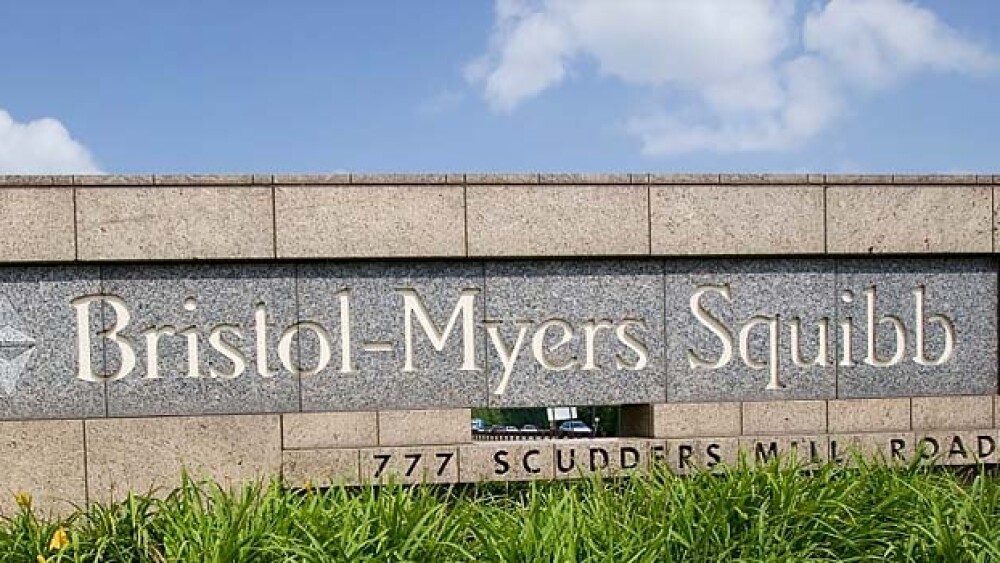Bristol-Myers Squibb reported a strong second quarter, with total revenues of $5.7 billion, up 11 percent from the same quarter in 2017, when it reported $5.144 billion. Sales were driven by Eliquis (apixaban) and Opdivo (nivolumab).
Bristol-Myers Squibb reported a strong second quarter, with total revenues of $5.7 billion, up 11 percent from the same quarter in 2017, when it reported $5.144 billion. Sales were driven by Eliquis (apixaban) and Opdivo (nivolumab).
Eliquis global sales grew 40 percent by $474 million. Opdivo grew 36 percent by $432 million. Orencia grew by 9 percent, Sprycel by 6 percent and Yervoy by 2 percent.
In an update to its portfolio and pipeline, the company noted that the U.S. Food and Drug Administration (FDA) approved in July Opdivo plus low-dose Yervoy to treat adults and pediatric patients 12 years and older with microsatellite instability-high or mismatch repair deficient metastatic colorectal cancer that has progressed after treatment with fluoropyrimidine, oxaliplatin and irinotecan. In June, the European Medicines Agency (EMA)’s Committee for Medicinal Products for Human Use (CHMP) recommended expanded approval for Opdivo to include adjuvant treatment for patients with melanoma with lymph node involvement or metastatic disease that has undergone complete resection. Also in June, the FDA accepted its supplemental Biologics License Application for Opdivo plus low-dose Yervoy for first-line advanced non-small cell lung cancer (NSCLC) in patients with tumor mutational burden.
The company also highlighted some of its other successes, including in June the China National Drug Administration approving Opdivo for locally advanced or metastatic NSCLC after prior platinum-based chemotherapy in patients without EGFR or ALK genomic tumor aberrations. And in July, the European Commission expanded the indication for Sprycel to include children and adolescents aged 1 year to 18 years with Philadelphia chromosome-positive chronic myeloid leukemia in chronic phase.
“We had a very good second quarter where we delivered strong performance for Eliquis and Opdivo, and achieved important regulatory and data milestones supporting our Immuno-Oncology portfolio,” said Giovanni Caforio, the company’s chairman and chief executive officer, in a statement. “Looking forward, we are focused on robust commercial execution and the evolution of our diversified pipeline to deliver transformational medicines to the patients we serve.”
Yahoo! Finance writes, “Bristol-Myers has a mixed record of earnings surprises in the recent quarters. The company’s earnings surpassed expectations in three of the last four quarters, with an average positive surprise of 2.71 percent. Currently, Bristol-Myers has a Zacks Rank #3 (Hold), but that could definitely change following the company’s earnings report which was just released.”
Earnings per share (EPS) was $1.01, beating out a consensus projection of $0.87. The company also updated its earnings outlook, from $3.35 to $3.45 to $3.55 to $3.65. The Zacks Consensus Estimate for earnings remains the same at $4.43 per share.
For deals, in July, Bristol-Myers Squibb and Tsinghua University signed a collaboration deal to find compounds against novel targets for autoimmune diseases and cancers. In April, Bristol-Myers and Nektar Therapeutics wrapped an agreement for the development and commercialization of NKTR-214 with Opdivo and Opdivo plus Yervoy, which was originally announced in February 2018. And in April, the company inked a three-year deal with Flatiron Health to curate regulatory-grade real-world data for cancer research and real-world evidence generation.





